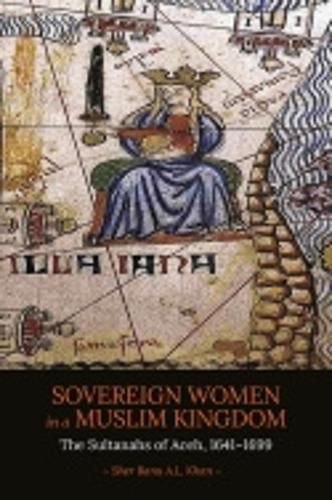Readings Newsletter
Become a Readings Member to make your shopping experience even easier.
Sign in or sign up for free!
You’re not far away from qualifying for FREE standard shipping within Australia
You’ve qualified for FREE standard shipping within Australia
The cart is loading…






In Sovereign Women in a Muslim Kingdom, Sher Banu A. L. Khan provides a fresh perspective on the women who ruled in succession in Aceh for half the seventeenth century. Khan draws fresh evidence about the lives and reigns of the sultanahs from contemporary indigenous texts and the archives of the Dutch East India Company. The long reign of the sultanahs of Aceh is striking in a society where women rulers are usually seen as unnatural calamities, a violation of nature, or even forbidden in the name of religion. Sovereign Women in a Muslim Kingdom demonstrates how the sultanahs’ rule was legitimized by both Islam and adat (indigenous customary laws). Khan provides original insights on the women’s style of leadership and their unique relations with the male elite and foreign European envoys who visited their court. This book calls into question received views on kingship in the Malay world and shows how an indigenous polity responded to European companies in the age of early East-West encounters during Southeast Asia’s age of commerce.
$9.00 standard shipping within Australia
FREE standard shipping within Australia for orders over $100.00
Express & International shipping calculated at checkout
In Sovereign Women in a Muslim Kingdom, Sher Banu A. L. Khan provides a fresh perspective on the women who ruled in succession in Aceh for half the seventeenth century. Khan draws fresh evidence about the lives and reigns of the sultanahs from contemporary indigenous texts and the archives of the Dutch East India Company. The long reign of the sultanahs of Aceh is striking in a society where women rulers are usually seen as unnatural calamities, a violation of nature, or even forbidden in the name of religion. Sovereign Women in a Muslim Kingdom demonstrates how the sultanahs’ rule was legitimized by both Islam and adat (indigenous customary laws). Khan provides original insights on the women’s style of leadership and their unique relations with the male elite and foreign European envoys who visited their court. This book calls into question received views on kingship in the Malay world and shows how an indigenous polity responded to European companies in the age of early East-West encounters during Southeast Asia’s age of commerce.